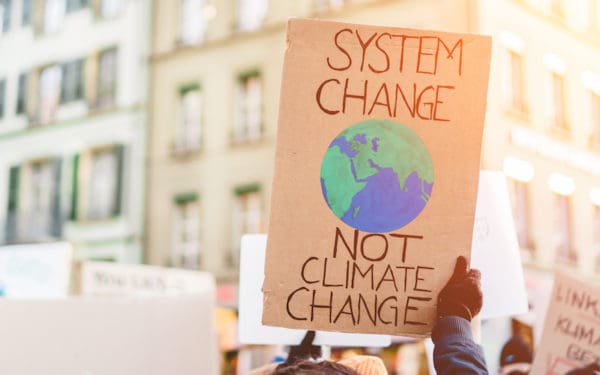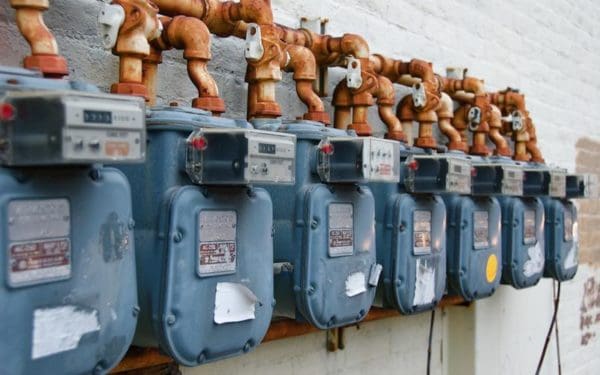Since the Rhode Island Superior Court denied Invenergy’s motion to dismiss CLF’s lawsuit against the company, I have received lots of questions from CLF supporters asking questions about the ruling and what it means. Here are answers to the most frequently asked questions.
Does the Judge’s ruling on June 20 mean that CLF won the lawsuit or not? What exactly was decided?
On June 20, CLF won a procedural victory. The important thing to keep in mind is that most lawsuits involve two different types of matters: substance and procedure. The substance of the lawsuit is that CLF says the water contract between the Town of Johnston and Invenergy is illegal. (And the reason CLF filed the lawsuit is that we hope that when the Court rules in our favor, that ruling will at least help kill the Invenergy proposal for good; see below.)
At a procedural level, Invenergy filed a Motion to Dismiss CLF’s lawsuit. On June 20, the Court denied Invenergy’s Motion to Dismiss. In other words, the Court ruled that CLF’s lawsuit can go forward. The important thing to understand here is that this means that the Court decided that it would hear (and rule on) the substance of the case – CLF’s claim that the contract between Johnston and Invenergy to supply water to the company’s proposed fracked gas power plant is illegal.
So what will happen next?
There are still several procedural aspects of the case that will occur before the court addresses the substance of the case. On June 20, the Court ordered that CLF add to the lawsuit 18 entities, mostly other cities and towns that, like Johnston, also get their water from Providence Water. These include Scituate, Cranston, Smithfield, Warwick, and others. That means that these additional cities and towns will become defendants in the lawsuit. The Judge’s reasoning for requiring this is that, if CLF wins its case, these other municipalities could be affected by the ruling.
It will take CLF a few weeks to add these 18 other municipalities to the lawsuit, and then these municipalities may have as many as 60 days to respond to the lawsuit. (In their responses, many of these municipalities may seek to be dropped from the lawsuit, because they really don’t care how the lawsuit turns out.) Once those responses are handled, the Court can turn to the substance of the case. This is likely to mean that it will be autumn before the Court can start addressing substance.
What about the substance of the case?
CLF believes that it has a strong argument: that Johnston cannot sell Providence water to a Delaware company, based in Chicago, for a power plant in Burrillville. The law in question allows Johnston to take water from Providence only for “domestic, fire, or ordinary municipal water supply purposes.” In this case, Johnston’s resale to Invenergy does not fit into any of those three categories. No ethical lawyer will ever predict with certainty the outcome of a pending lawsuit, but CLF believes it has a strong case on the merits.
What will happen if CLF eventually wins the Superior Court case? Would Invenergy be dead?
No. Even if CLF wins the Superior Court case – that is, the Superior Court agrees with CLF that the water contract between Johnston and Invenergy is illegal – it is still up to the state’s Energy Facility Siting Board to grant or deny a permit to Invenergy. If CLF wins the Superior Court case, then Invenergy would have to find a new, legal source of water. It is possible that Invenergy could do that (though that has proven difficult for the company up until now).
But wouldn’t it take more time for Invenergy to find another water supply?
Yes. Although Invenergy might be able to find a new water source, it would take significant time for Invenergy to provide the Siting Board with all the detailed information about that new water source that the Siting Board law and rules require. And finding a new water source at this stage of the proceedings would certainly increase the risk that the plant may not be permitted.
What happens if CLF loses the Superior Court lawsuit?
If the Superior Court judge decides that Johnston can sell water to Invenergy, this would make Siting Board approval of the Invenergy proposal more likely.
What direct impact will the Superior Court case have on the Siting Board’s Final Hearing on Invenergy?
The Siting Board’s Final Hearing is currently scheduled to start October 4 and run past the end of the 2017. The day after the Superior Court issued its decision, the Siting Board requested copies of all the legal papers in the Superior Court lawsuit. It is possible (but not certain) that the Siting Board may want to delay the Final Hearing on the Invenergy application until after the Superior Court case is resolved. This would seem to make sense, because the Invenergy proposal currently before the Siting Board involves Invenergy getting water from Johnston.
It sounds like the Invenergy case is far from over.
Yes, that’s right. The June 20 decision to allow the Superior Court lawsuit to proceed was a significant victory for CLF and for all opponents of Invenergy. For obvious reasons, Invenergy did not want to have to defend the legality of its water contract with Johnston. But remember that Invenergy has already spent millions of dollars on this proposal; Invenergy has a small army of lawyers at its disposal; and, if the plant is approved, Invenergy stands to make hundreds of millions of dollars in profit. The battle to stop Invenergy is not over; Invenergy will fight hard to protect its investment. And CLF will continue to fight hard for the people of Rhode Island to stop Invenergy.




